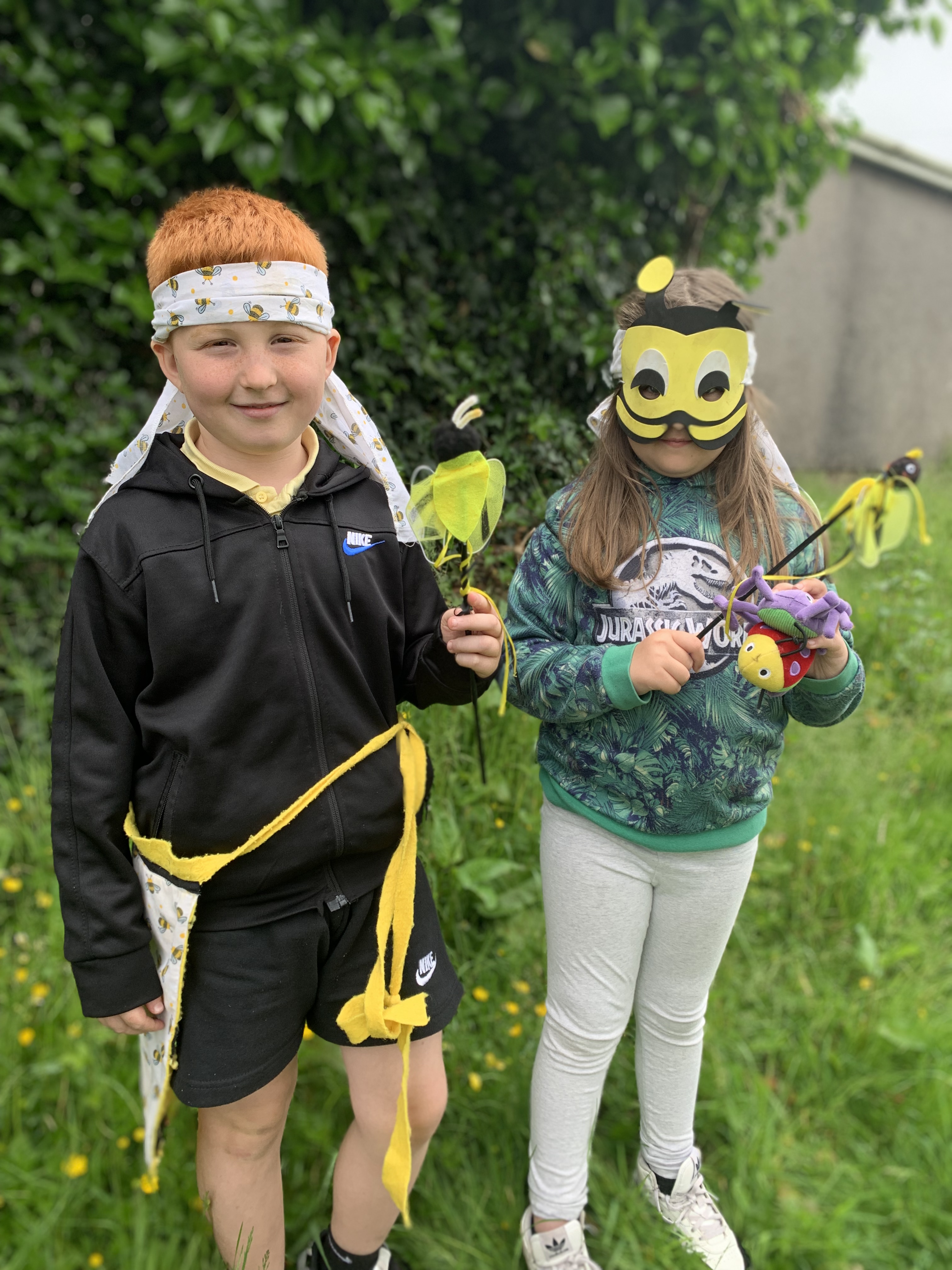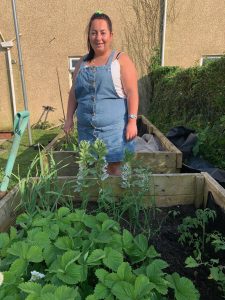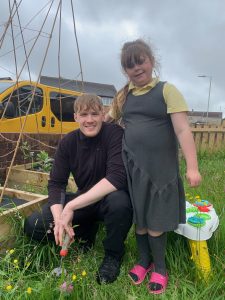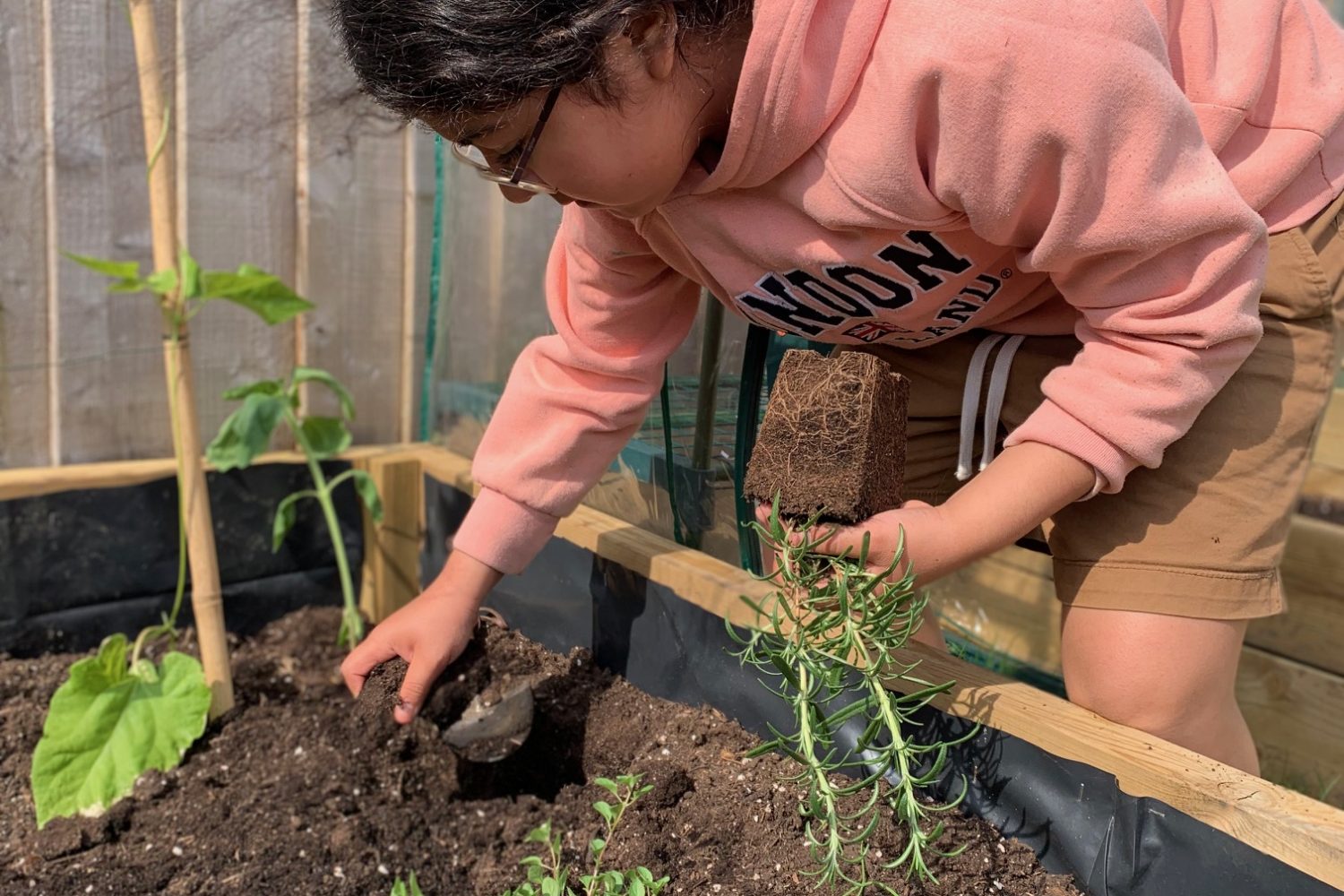Now in its fourth growing season, Cae Tan CSA and the Grow From Home project is supporting 13 families to develop basic skills around growing fresh, seasonal produce in their own gardens using regenerative methods. By providing them with raised beds, compost, seeds, tools, compost bins and a dedicated grower for support, they learn how to grow a variety of fruits and vegetables and reduce food bills, improve their health and wellbeing, and contribute to local biodiversity.

This project is only achievable with external funding and we are very grateful to the Postcode Community Trust and Swansea Council, Local Nature for Places grant.
The Winter Season
During the winter season families were shown how to care for their soil, replenishing it with manure, autumn leaves and covering for protection. Understanding soil health and its role in regenerative food growing is a key theme across this project. Nature continued to provide harvests of carrots, parsnips, kale, leeks and purple sprouting broccoli and we planted garlic for the following season.

Early Spring Season
As we approached spring we began to build our outdoor storage containers, added compost to beds, started to sow seeds, planted potatoes, onions and broad beans. It has been a record breaking wet Spring offering an opportunity to discuss climate change and food security.
Early Summer Season
The warm dry weather took a long time to come, with the cool temperatures and lack of sunlight inhibiting plant growth, however now the gardens are beginning to bloom with regular harvests of potatoes, salad, spring onions, peas, broad beans, beetroot, turnips, cucumbers,herbs and more. The importance of pollinators is a key theme so we are always planting flowers such as calendula, lavender and sunflowers, alongside our vegetables.

What’s next?
The bountiful harvests will continue to come. with excess produce shared with family members and the wider community. We have linked in with Bwyd Abertawe to enable an end summer visit to the farm, demonstrating to participants how they fit into the wider movement of regenerative, local food growing.


